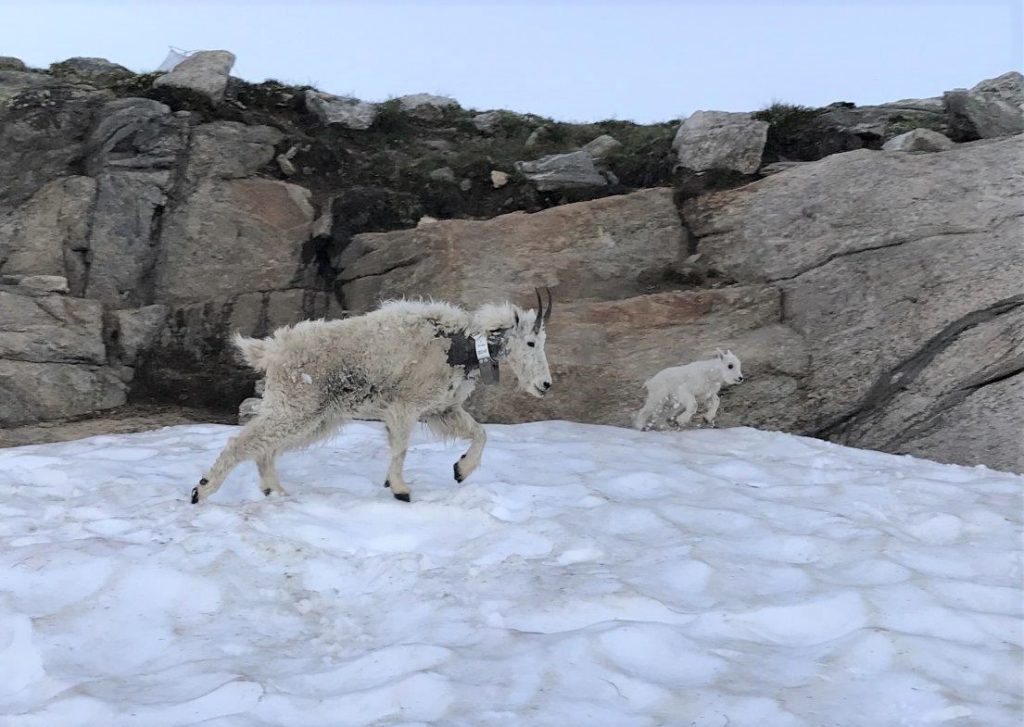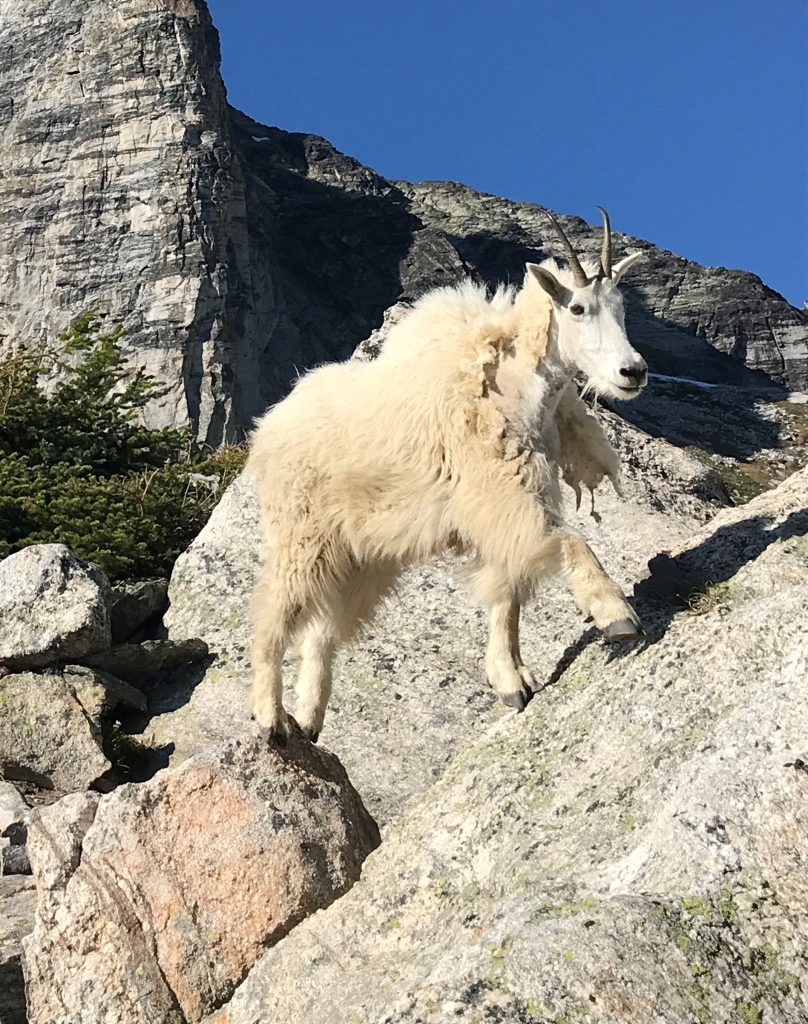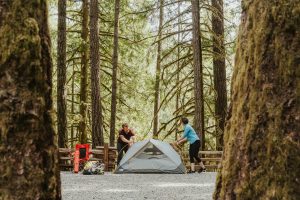Preventing human-goat conflicts in Valhalla Park
Categories:
Making sure attractants are secured is a common practice for many people when venturing into the great outdoors. But in Valhalla Park near Slocan B.C., an unsuspecting attractant is causing problems with local wildlife.
Known as a scenic area perched in the high alpine of the Selkirk Mountains, a backcountry campground and rock climbing area in the park have become a magnet for mountain goats drawn to the salt found in urine and sweaty clothing. Typically, anywhere from five to 10 goats show up at the campground and wait for people to urinate. They also pursue climbers at the base of Mount Gimli.
For the last nine years, BC Parks Area Supervisor Dave Heagy has watched the mountain goats become more habituated to people despite facility upgrades to help mitigate the problem, such as animal proof food storage, proper toilets and educational signage. Adding to an already complex problem, the number of people visiting the area has increased substantially during the last couple of years, with about 4,000 visitors now going to the area over the course of one season.
“It’s important people understand the challenges of this situation and anything they can do to help, such as using an outhouse, and packing away sweaty clothing and gear,” said Heagy. “We’ve been working on educating the public around this. The most important things to remember are to never urinate on the ground, even when camped overnight, stay away from the goats at all times, and to leave your dogs at home.”

More than half of the world’s mountain goats are found in B.C., living in rugged mountainous terrain scattered throughout the province. To learn more about the goat’s behaviour and travel routes in Valhalla Provincial Park, six goats were collared in 2021 and monitored throughout the summer, fall and winter. The GPS collars monitor the goat’s movements on a daily basis to help determine wintering areas and provide clues about natural mineral licks in the area.
As public education continues, BC Parks is also exploring ways to change the goat’s behaviour through the installation of natural and artificial mineral licks that divert goats away from the campground. According to Heagy, diversionary mineral licks have been successful in other areas of B.C. where goats and sheep are drawn to salt along highways.
Cathedral Provincial Park and Washington’s Olympic National Park are facing similar challenges with mountain goats, with one conflict in Washington resulting in a fatal injury to a hiker. So far, the goats in Valhalla have been pushy, but not overly aggressive. However, the growing number of visitors is making the situation more challenging.

“The number one thing is to ensure the safety of the public. Along with that of course is reducing the habituation of the mountain goats so their habits are more natural,” said Heagy. “When the goats have this habituated behaviour, sometimes it can take generations of goats for that behaviour to change.”
The project is being supported through the BC Parks Licence Plate Program. During the last five years, more than $350,000 has been spent on mountain goat initiatives including studies of goat and visitor behaviour in Cathedral Provincial Park, and surveys of the number of goats in several parks in the north and south coast. For more information about the BC Parks Licence Plate Program visit https://bcparks.ca/licence-plates/.





